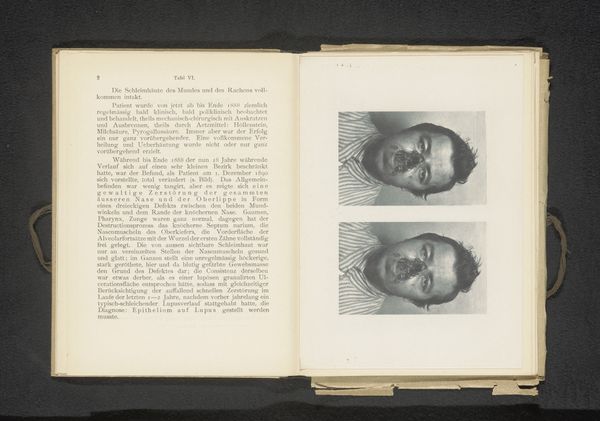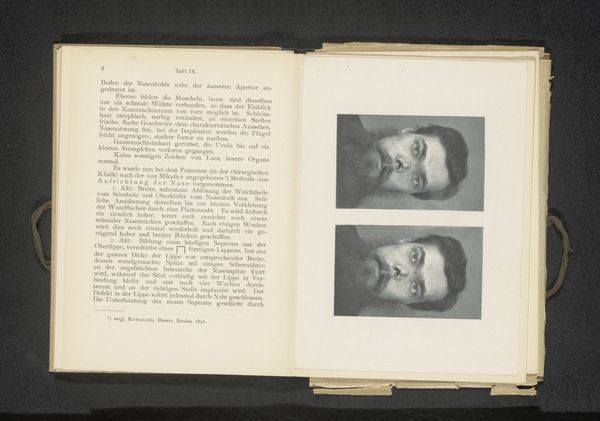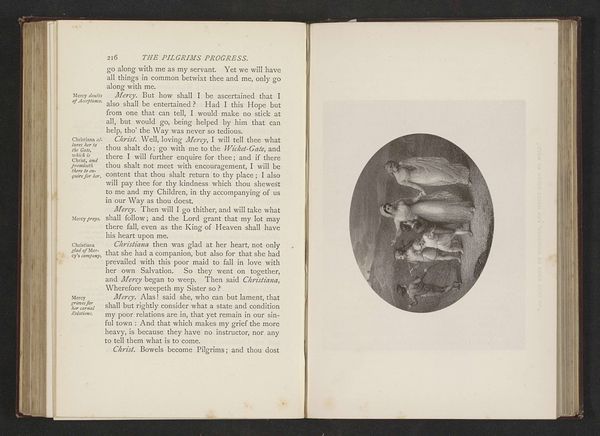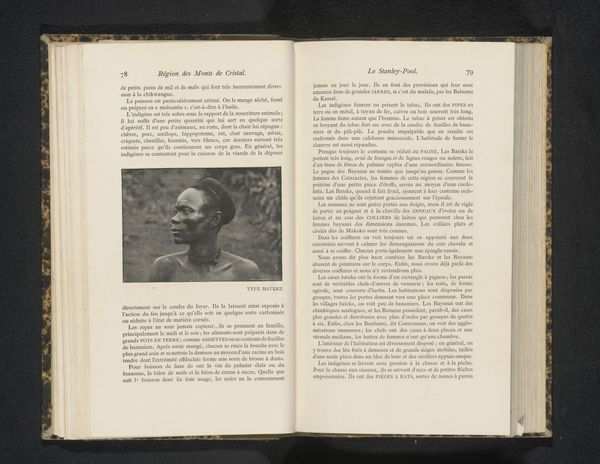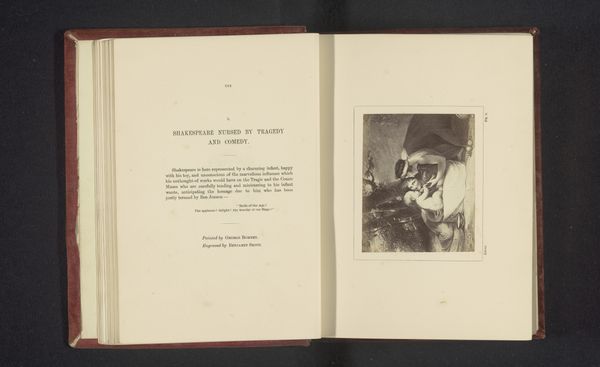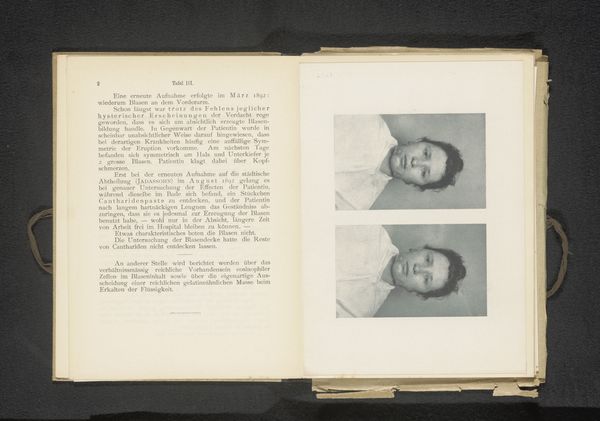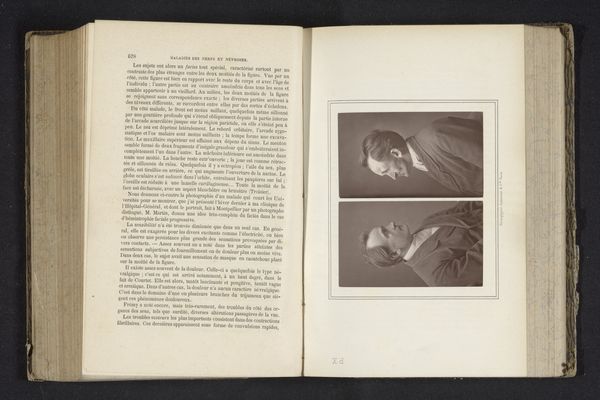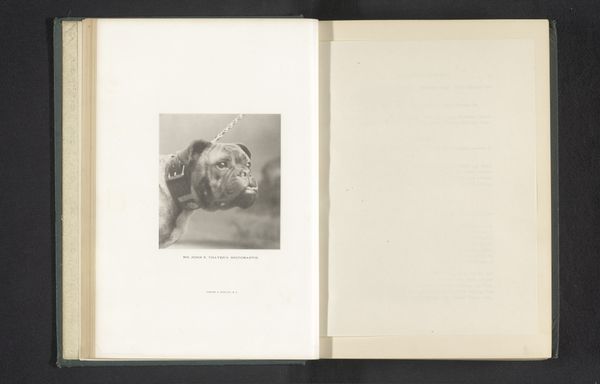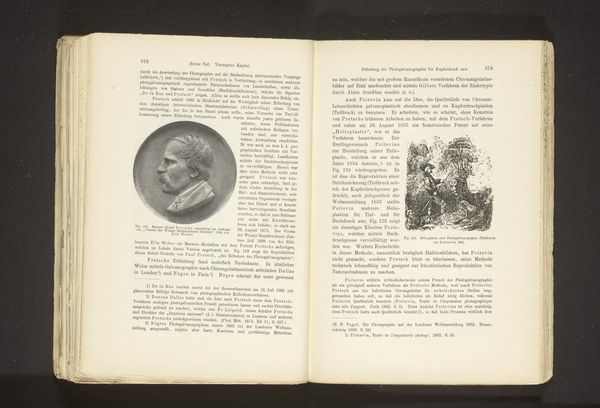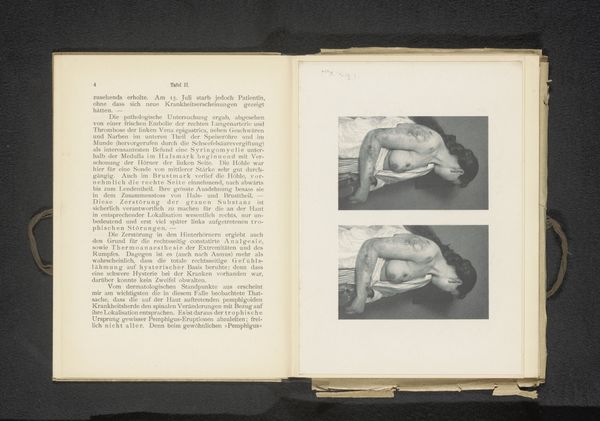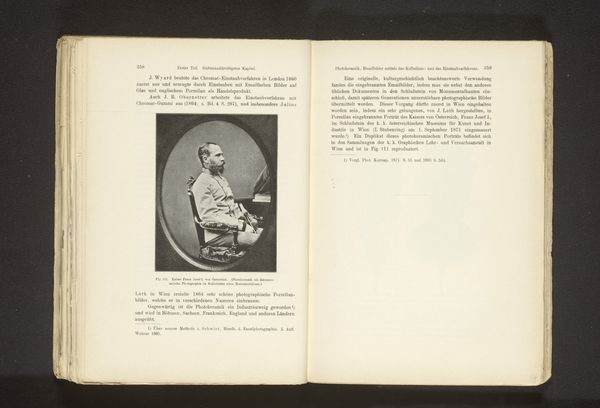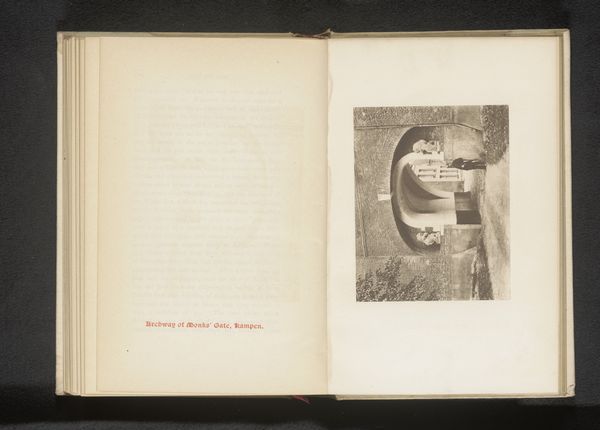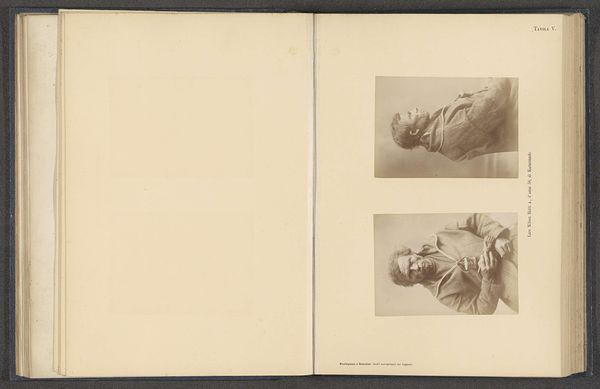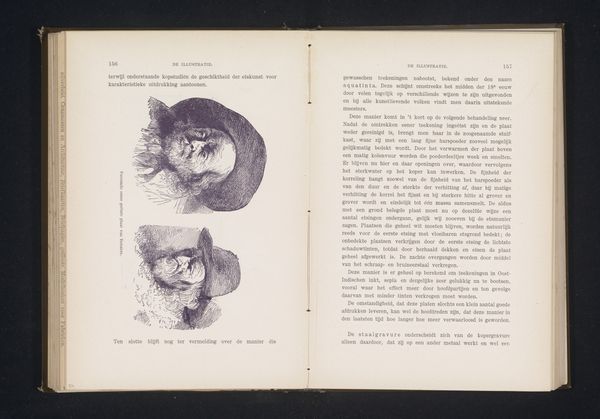
Twee portretten van een patiënt met symptomen van huidtuberculose aan het gezicht before 1894
0:00
0:00
print, paper, photography
#
portrait
# print
#
paper
#
photography
#
genre-painting
#
history-painting
#
academic-art
#
historical font
#
columned text
Dimensions: height 126 mm, width 175 mm
Copyright: Rijks Museum: Open Domain
These portraits of a patient with skin tuberculosis were created by Albert Ludwig Sigesmund Neisser, a time when medical photography was emerging as a tool for documentation and diagnosis. The images, stark and unsettling, capture the physical ravages of the disease, but they also speak to broader social and cultural anxieties surrounding health, visibility, and the representation of illness. Tuberculosis, often associated with poverty and marginalization, carried a heavy stigma. Neisser's clinical gaze, while intended to be objective, inevitably intersects with the power dynamics inherent in the act of looking. How do we, as viewers, navigate the ethical complexities of witnessing someone else's suffering through the lens of scientific scrutiny? These portraits confront us with uncomfortable questions about our own voyeurism. They prompt us to consider the tension between the desire to understand and the responsibility to respect the dignity of the individual.
Comments
No comments
Be the first to comment and join the conversation on the ultimate creative platform.
